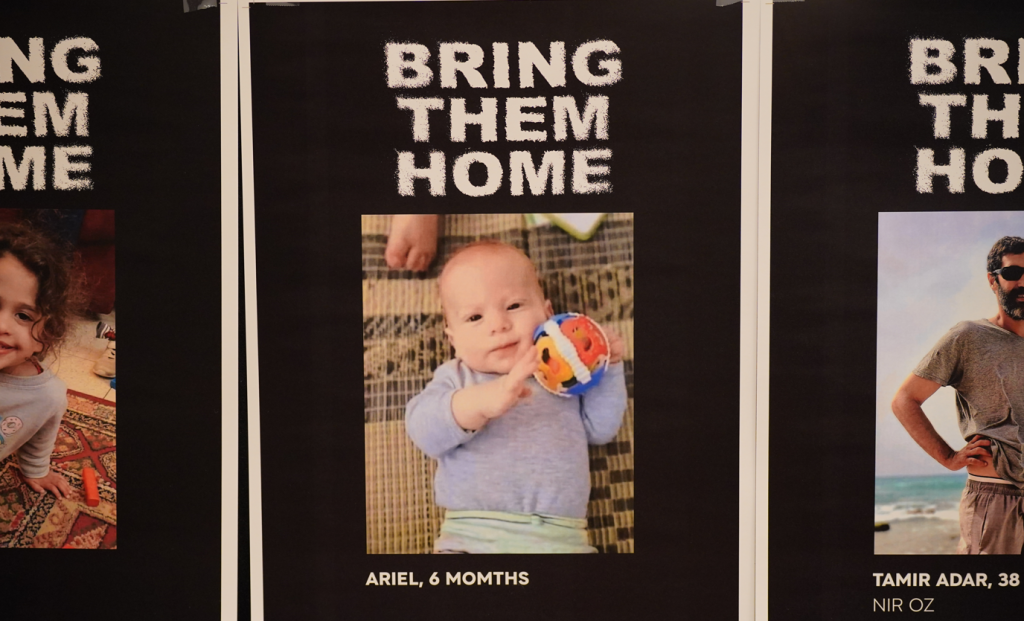Paragraph 1: The Dawn of a Fragile Hope
A glimmer of hope has emerged from the protracted darkness of the Israel-Hamas conflict. After months of painstaking negotiations, a tentative agreement has been reached for a cease-fire and hostage exchange. This breakthrough, brokered with the heavy involvement of US negotiators, promises the release of 98 hostages held captive by Hamas in Gaza, including 94 individuals abducted during the horrific October 7, 2023 massacre. The deal also reportedly includes the release of thousands of Palestinian security prisoners and an Israeli military withdrawal from strategic areas within the Gaza Strip. The fragile nature of the agreement is underscored by the cautious optimism of the hostage families, tempered by past disappointments and the agonizing uncertainty surrounding the fate of their loved ones.
Paragraph 2: Families Caught Between Hope and Anxiety
While the news of the potential hostage release has been met with a surge of hope, it is intertwined with deep anxiety and lingering doubts. Families, long tormented by the agonizing silence surrounding the fate of their captured loved ones, are now grappling with a complex mix of emotions. The joy of the potential reunion is tempered by the painful awareness that some hostages may not return alive. The uncertainty surrounding the condition of those who might be released – physically and mentally scarred by their ordeal – adds another layer of concern. Years of captivity under Hamas, known for its brutal treatment of prisoners, have left families bracing for the long road to recovery that lies ahead.
Paragraph 3: A Deal in Two Phases: Uncertainties Remain
The agreement unfolds in two phases, a structure that fuels both hope and apprehension. The first phase centers on the immediate cease-fire and the initial exchange of hostages. However, the details of the second phase, crucial for the release of the remaining captives, including captured Israeli soldiers, remain shrouded in ambiguity. This lack of clarity has generated deep concern among families, who fear that some hostages might be left behind. The absence of a concrete timeline for the second phase leaves them in a state of agonizing suspense, clinging to the hope that the agreement will be fully implemented.
Paragraph 4: Political Pressure and International Involvement
The breakthrough in negotiations came after intensive diplomatic efforts, particularly from the United States. Outgoing President Biden’s administration and incoming President Trump’s team both played significant roles in pushing for a resolution. President-elect Trump’s strong rhetoric, warning of significant consequences should the deal falter, added pressure on the negotiating parties. The involvement of US Middle East envoy Steve Witkoff, who engaged in reportedly tense meetings with Israeli Prime Minister Benjamin Netanyahu, underscores the high stakes of the negotiations and the delicate balance required to achieve a breakthrough.
Paragraph 5: The Human Cost of Conflict: Awaiting Reunion and Closure
The prolonged captivity has taken a devastating toll on the hostages and their families. The Bibas family, abducted from Kibbutz Nir Oz during the Hamas invasion, exemplifies the human tragedy at the heart of this conflict. Parents, Shiri and Yarden, along with their young children, Ariel and baby Kfir, have endured over 460 days in captivity, their fate unknown. Their families, desperately clinging to hope, are preparing for the complex challenges of rehabilitation and the difficult process of readjustment should they return. The upcoming second birthday of baby Kfir, a poignant reminder of the time stolen by the conflict, underscores the urgency of securing their release.
Paragraph 6: A Collective Plea for Swift Resolution and Lasting Peace
The Hostages and Missing Families Forum, representing the collective voice of the families, has welcomed the agreement with a mix of joy and apprehension. They express gratitude to the international community for their efforts but emphasize the critical importance of full implementation. The families’ plea for swift arrangements to ensure the release of all hostages reflects their unwavering determination to bring their loved ones home. Their call for the living to be returned to their families for rehabilitation, and the deceased to be given proper burials, underscores the profound human cost of the conflict. The statement concludes with a powerful message of resolve: "We will not rest until we see the last hostage back home." This sentiment encapsulates not only the families’ unwavering commitment to their loved ones but also their deep desire for a lasting peace that will prevent such tragedies from ever happening again.


